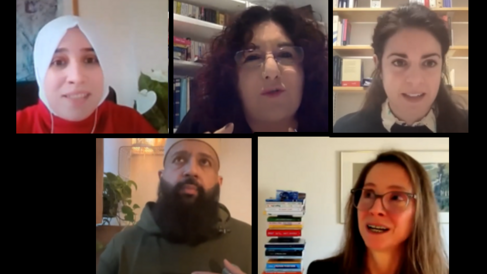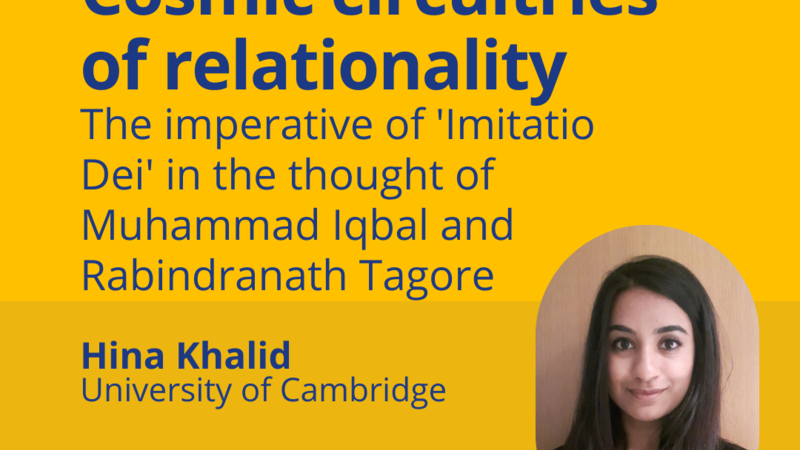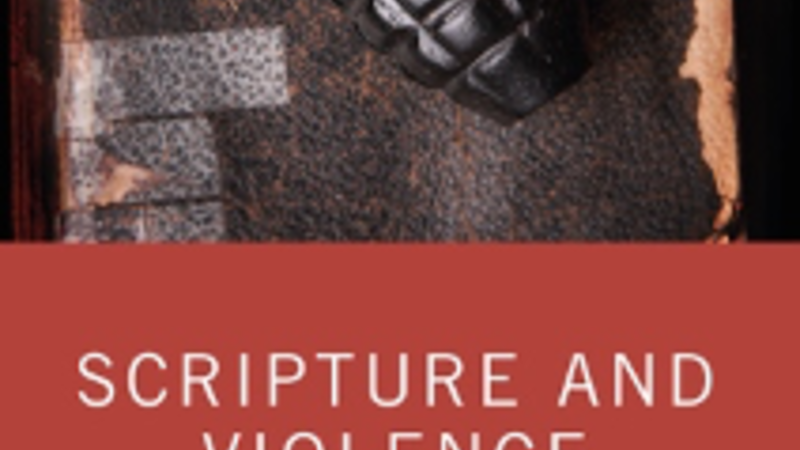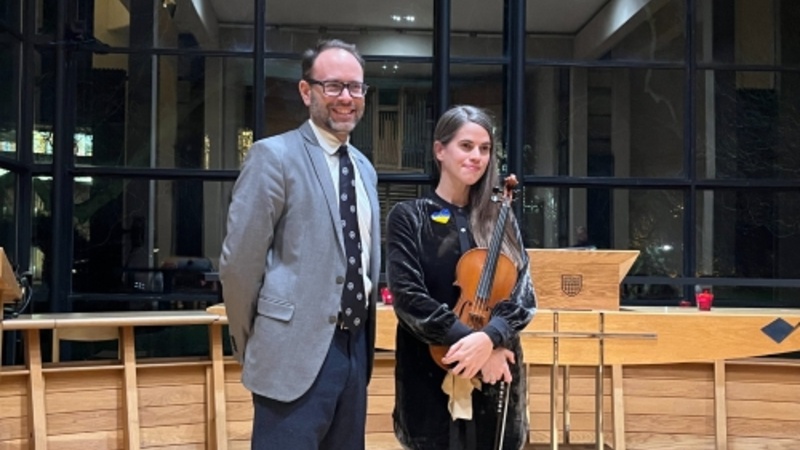
The rhythms of the calendar year vary across religions, as also between nations, continents, and hemispheres. Since its establishment through UN resolution in 2010, World Interfaith Harmony Week (WIHW) has provided a moment for connection between those calendars. At the Cambridge Interfaith Programme, we welcome this annual opportunity to look outward and consider how and where our current work most resonates.
Opening cosmic circuitries

To take the finite without the infinite is to take the 'lamp without its light, [the] violin without its music' and thus not to know the map or violin at all.
Responding to the paper, Steven Toussaint, also a current PhD student in the Faculty of Divinity, opened two strands of questioning. The first, espoused a spirit of interfaith dialogue: Can we discern metaphysical harmonies between Tagore, Iqbal and certain figures in the Christian tradition? Secondly, noting Hina's exposition of the poets' practical ethic of de-centring, Steven asked: Is there also a normative model for artistic practice discoverable in their poetics?
Both the paper and the response are available to watch again on the Faculty of Divinity's YouTube channel.
Scripture and Violence?

The launch event took place online, enabling low carbon input from several of the book's essayists. Speakers took it in turn to summarise the different chapters, as well as to explain how the other resources (discussion guides, videos) had been tried and tested in a range of on and offline settings. Ideas to further develop resources for and in partnership school-based educationalists and policy-oriented institutions are now being explored. Those who had registered to attend were provided with a discount code enabling 25% off the book until the end of March. (All associated resources are available free, courtesy of www.scriptureandviolence.org.)
For those able to travel to the Faculty of Divinity, Dr Weiss also ran a taster workshop on 7 February. This focused on a specific passage, the punishment of a "wayward and defiant" son (Deuteronomy 21:18-21) encouraging participants to compare their own interpretation of the text with rabbinic tradition.
Language in/as religion
Continuing a conversation begun during UK Inter Faith Week (November 2022), on 2 February Dr Anastasia Badder (Cambridge) and Dr Jo-Ann Myers (Leo Baeck College) joined a panel with Dr Leslie J Moore (Ohio State) and Adel Mozammel. The goal was to consider how language learning, especially the use and acquisition of languages within religious communities, functions as a form of religious education. Bringing together action research and ethnography, two very different methodological approaches, enables a discussion about what religious communities seek to achieve, the impact of their practices on self-understanding, and the process of sense-making from observational research.
Billed as a roundtable, this webinar was ably chaired by Yomna Helmy from the Cambridge Centre of Islamic Studies. The questions in focus included distinctions between 'religious' and 'mundane' languages (touching also upon the 'sacred'), and the ethics of research in this domain. Those attending via Zoom were encouraged to join the conversation. A recording of this webinar (and of the previous one in the series) can be accessed on YouTube. Information is now available for the third and final event in this religion & language miniseries, taking place in Cambridge and online on 27 March 2023.
Working in interfaith spaces
In a late addition to our WIHW schedule, we were delighted to welcome Siobhàn Anderson from the Faith and Belief Forum for a career talk with Faculty of Divinity students. Arranged in partnership with the student-led Divinity Society, this was a conversation between Lucy L. (current DivSoc president) and Siobhàn, with an array of questions fed through from the online audience. A graduate of Exeter theology faculty (and with an Masters from King's College London), Siobhàn drew upon her experience with FBF and other charitable organisations to discuss the opportunities and benefits of work in this sector. A recording is available on request (for students who could not attend).
Awake my soul!

As Fitzwilliam College chaplain the Rev Graham Stevenson explained,
“Through outstanding musical performance and open discussion, this interfaith exploration of the Psalms gave voice to the texts and to our own responses. Together, we enriched our understanding of the Psalms, ourselves and one another, and so, we could say, we awakened our souls!”
